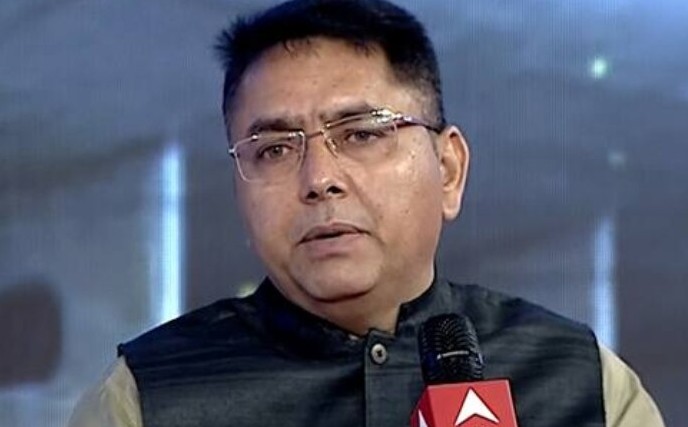Aman Arora, Punjab’s Cabinet Minister and a prominent leader of the Aam Aadmi Party (AAP), recently launched a scathing attack on senior Congress leader and Leader of Opposition in the Punjab Assembly, Partap Singh Bajwa, reviving old allegations and accusing him of indulging in what he termed as “hypocritical politics.” This confrontation has intensified the political atmosphere in the state as both leaders engage in a war of words that reflects broader ideological and administrative divides between the ruling AAP government and the opposition Congress.
In his statement, Aman Arora targeted Bajwa’s record during his previous tenures and questioned his credibility as a critic of the present administration. Arora emphasized that Partap Bajwa, who had occupied high-ranking posts under Congress governments in Punjab, had failed to deliver tangible results for the people. According to Arora, Bajwa’s criticisms of the AAP government are not grounded in facts but rather stem from a deep-seated discomfort with the reforms being initiated by the new administration, reforms which are, in Arora’s view, disrupting the political status quo that Bajwa and others had long benefited from.
Arora didn’t stop at questioning Bajwa’s leadership record but also reminded the public and the media of several controversies that had plagued Bajwa in the past. Although not delving into the specifics of every allegation, Arora made pointed references to Bajwa’s time as a Member of Parliament and his alleged failure to take firm stances on issues related to corruption and governance. Arora said that Bajwa often adopted a double standard—raising his voice selectively, depending on political convenience.
The AAP minister further accused Bajwa of attempting to obstruct the state’s progress by indulging in continuous criticism rather than constructive dialogue. Arora highlighted that the AAP government, under the leadership of Chief Minister Bhagwant Mann, has focused on initiatives to address key public issues such as education, healthcare, electricity, and anti-corruption measures. According to Arora, Bajwa and his party had neglected these areas for years, leading to the deterioration of public confidence in traditional political players like the Congress.

Aman Arora also criticized Bajwa’s behavior in the Assembly, saying that the Congress leader often resorts to theatrics instead of contributing meaningfully to debates. He alleged that instead of offering solutions or representing the people’s concerns effectively, Bajwa was more interested in scoring political points and distracting from the real issues at hand. Arora called on Bajwa to engage with the government’s policies based on their merit rather than seeking to discredit them through political rhetoric.
One of the key issues that has become a flashpoint between the two leaders is governance reform. The AAP government has introduced multiple transparency initiatives and aimed to reduce corruption in the bureaucracy. Arora defended these steps, claiming that much of the pushback from opposition figures like Bajwa was because these reforms challenged vested interests and broke away from the patronage networks that thrived under previous governments. He asserted that the people of Punjab had given the AAP a historic mandate to clean up governance, and the government remained committed to fulfilling that trust, regardless of the resistance it faced from entrenched political rivals.
In the backdrop of these exchanges, analysts have noted that both leaders represent contrasting political cultures. While Bajwa is a veteran politician from a legacy party with years of experience, Arora is part of a new wave of leadership that is trying to reshape the political narrative in Punjab. Their clash is not just personal but also symbolic of the broader tensions between traditional politics and reformist agendas. Arora’s sharp criticisms, therefore, must be viewed within the context of AAP’s attempts to position itself as a people-first alternative to the older parties.
Despite the ongoing feud, political observers have pointed out the importance of maintaining decorum and focusing on public welfare over political bickering. Many have called for more issue-based discussions and constructive engagement between the ruling party and the opposition. However, given the current political temperature in Punjab, such a scenario appears increasingly distant.
Aman Arora concluded his remarks by asserting that the AAP government welcomes scrutiny and opposition, but only when it is rooted in facts and aimed at bettering governance. He said that hollow accusations and resurfacing old, unproven allegations serve no purpose other than creating political noise. Instead, he invited Bajwa and others in the opposition to work collaboratively on areas where bipartisan support could help bring lasting change.
The strong words exchanged between Arora and Bajwa are likely to continue fueling debates in Punjab’s political circles, especially as both leaders represent constituencies with active voter bases that closely follow such confrontations. While the AAP government continues its efforts to deliver on its promises, it is also clear that it will not shy away from taking on political opponents who attempt to question its legitimacy or disrupt its agenda.
This latest episode is just another chapter in the larger political rivalry playing out in Punjab as the AAP looks to consolidate its position as a reform-oriented party and the Congress seeks to reclaim its lost ground. With elections always on the horizon in some form—whether local, assembly, or national—the stakes for both parties are high. As such, these verbal battles, though often intense and dramatic, reflect the shifting dynamics of power and public expectation in a politically vibrant state like Punjab.


